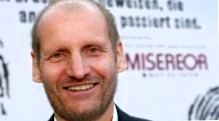
The aid agency Misereor is among the civil society representatives to be included in the deliberations at the G20 summit. In an interview, chief executive Pirmin Spiegel talks about his expectations.
CBA: What to expect from this week's G20 summit in Hamburg, Germany?
Spiegel: The summit is taking place in very turbulent times, when the G20 is facing a test of strength because many member states are guided by national interests. Therefore, the signs do not seem to be very good for constructive solution-oriented negotiations. For example, when it comes to the sustainable development goals set by the UN in Agenda 2030 or the Paris climate agreement. Here we are more skeptical than confident. Also in terms of a much-needed fairer and more socially acceptable economic and financial policy.
CBA: That does not sound very hopeful…
Spiegel: Perhaps it must be considered a value in itself that the summit is taking place at all in these troubled, nationalist-oriented times. And also that the G20 countries continue to work on international cooperation, dialogue and joint shaping of globalization. For millions of people, this could mean a better quality of life and more participation. If ideas and initiatives that are brought in by civil society and the churches are then taken up, perhaps more can develop than we have dared to hope for so far.
CBA: What ideas would those be?
Mirror: Like a stronger focus on the needs of the poorer and the vulnerable. Or that economic policy does not focus too much on growth, but takes into account aspects such as poverty reduction, human dignity, human rights and the finiteness of our planet's resources. We expect — and I also said this to the Chancellor — that Germany, as host, will press very clearly for the implementation of human dignity and human rights in all member states.
CBA: You mentioned the sustainability goals and the climate agreement, which should be the benchmark for the G20 talks. At the same time, Germany itself will probably not achieve many goals in the coming years. Is this not cynical?
Spiegel: The implementation of the climate agreement is a challenge for all countries, including Germany. Especially now that the election campaign is focusing more on other ies such as security or flight and migration. That is why we repeatedly point out how urgent the problem is and that there are already millions of people whose lives are threatened by climate change. Global warming, for example, is not an ie for the future, but is already a bitter reality for many people today.
CBA: U.S. President Donald Trump has canceled the climate agreement and wants to cut development aid. What would you say to him at the summit?
Spiegel: If I had the chance, I would tell him that this is a slap in the face for those who are already suffering from climate change and whose suffering he is turning a blind eye to. The announced cut in development aid funds is also the wrong signal — all the more so if at the same time even more is to be invested in armaments. However, one must also bear in mind that the U.S. under Barack Obama also had its own interests very much in mind and, for example, never paid its outstanding membership dues to the UN budget.
CBA: Worldwide, more than 60 million people are on the run. However, many of the G20 countries take in no or very few refugees. What needs to change here?
Spiegel: This has to be seen in a differentiated way. There are countries like Saudi Arabia that do very little. Others are doing a lot, such as Turkey, Canada, also Germany. Overall, however, it must be said that the G20, as economically particularly powerful countries, also has a special humanitarian responsibility to make its contribution, including for the reception of refugees. But humanitarian aid alone is not enough. We need a change in policy, because the G20 is partly responsible for the crises — for example, through arms exports to unstable regions. What is needed is a completely different approach to conflict prevention and a fairer share in prosperity and future opportunities for all people.
CBA: The G20 wants to stimulate more private and public investment in Africa. Many non-governmental organizations are concerned about social and environmental standards. Do you share these concerns?
Spiegel: Quite clearly yes! We are glad that Africa is prominently on the agenda at this summit. But the question is to what extent the actors from Africa themselves will also have their say? We demand clear, binding environmental, social and human rights standards for private sector investment decisions. So far, many large infrastructure projects often bypass the needs and opportunities of local people.
CBA: When will the summit be a success?
Spiegel: My hope is that the previous losers of globalization will no longer remain losers, that the perspective of the most vulnerable will be taken more into account, and that planet Earth will be seen as our common home. Realistically, we should be happy if the summit at least proves the value of international cooperation and dialogue and if the participants at least agree that they want to continue to shape globalization together.
The interview was conducted by Gottfried Bohl.